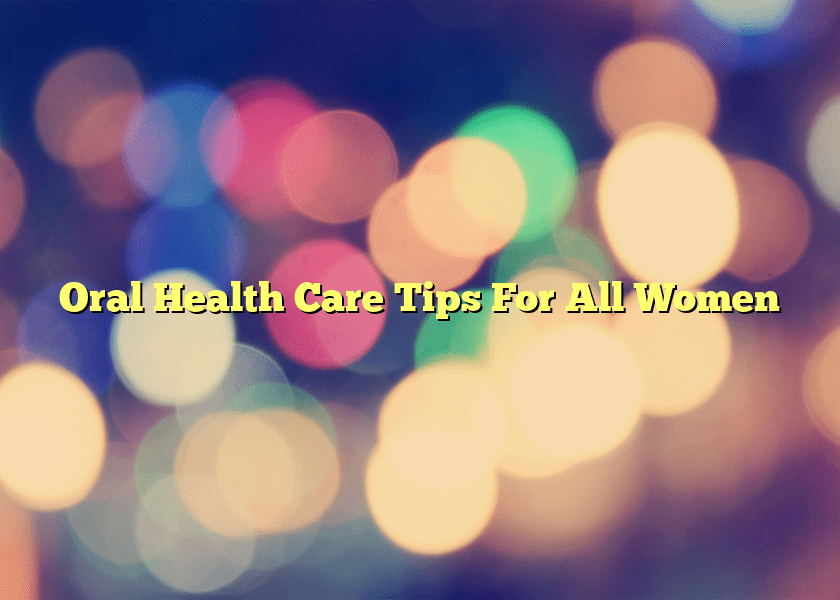Oral Health Care Tips For All Women
Men and women are unique in their health needs. This is so because women tend to undergo a lot of bodily changes at various stages of life. At the stage of life like puberty, pregnancy or menopause women’s oral health needs also varies. While women are more meticulous and can take better care and manage their affairs well, because of women’s genetic makeup and hormonal fluctuations, men generally excel more in their oral health status than women. With the many hormonal changes in a woman’s life, their overall health including the gum tissues can become affected.
According to research, 23 percent of women within the age group of 30-45 already developed periodontitis. As women become older, the percentile reached as high as 44%. With this we could infer that as women age, the incidences of gum problem leading to tooth decay becomes increasingly higher. And so, it is highly important to do preventive treatment to protect one’s health at each stage of a woman’s life so as not to fall prey to the silent gum disease also known as periodontitis. Many women oftentimes realize that they have an oral problem when the gum infection already reached an advanced state.
At puberty stage a woman’s life becomes sexually active. It is at this stage that the production of progesterone and estrogen is increasingly high. With this, blood circulation even to the gums becomes active inducing sensitivity to irritants, plaque and food itself. Tenderness, swelling and reddening of the gums are likely to be expected. It is at this stage that good oral hygiene such as daily brushing and flossing should be practiced. Visits to the dentist can also help because a young woman may need periodontal therapy. The treatment can cure gum tissue irritation and will strengthen the bone around the teeth area. As the young woman passes the stage of puberty, gum sensitivity will also lessen. Right before their menstrual period, there are women who suffer from menstruation gingivitis. This is a condition where gums also bleed and become reddish and swollen even at the point of developing sores near the gum area. Once the period started, the swelling would also subside.
If there is menstruation gingivitis there is also what we call pregnancy gingivitis. This condition starts at the second month of pregnancy up to the 8th month. There are times the swollen gums form large lumps. We call this as pregnancy tumors but they are not dangerous or painful. If the condition becomes severe, tumors can then be removed by a periodontist. Periodontal condition such as this should be given preferential attention because it will have an effect on the unborn child. An expectant mother can give birth at an earlier date to a low birth weight baby. So as not to have this negative experience, oral care treatment should be included in every woman’s prenatal care. Even women who use contraceptives are not immune to having oral gingivitis. It should be noted however that the antibiotic drugs for periodontal disease can diminish the effectiveness of contraceptives.
During menopausal and post-menopausal stage, dental care is needed still. Only a small population of women is affected by the menopausal gingivostomatitis. The condition is marked by dry or shiny gums that bleed easily. Dryness of mouth, burning, altered taste and pains on the gums are just some of the symptoms of the disease. Hormone replacement therapy for menopausal women can alleviate calcium loss and can strengthen teeth and help fight against osteoporosis.
To protect a woman’s oral health at various stages of life, she should see a dentist regularly. Two times a year visit or more will do. It is important also to take note of oral disease indicators such as bleeding gums, receding gums, bad breath, pus, loose teeth, change in bite or fit of dentures. Any medications should also be reported to your dentist and the day to day regimen of brushing and flossing at least twice per day should be followed religiously.
